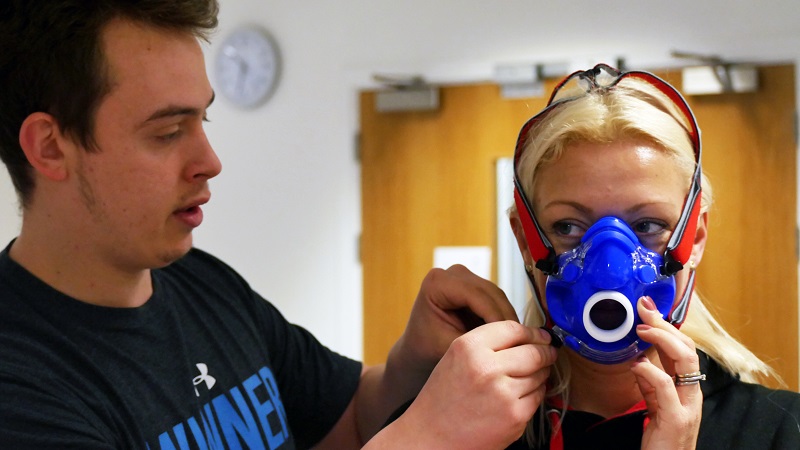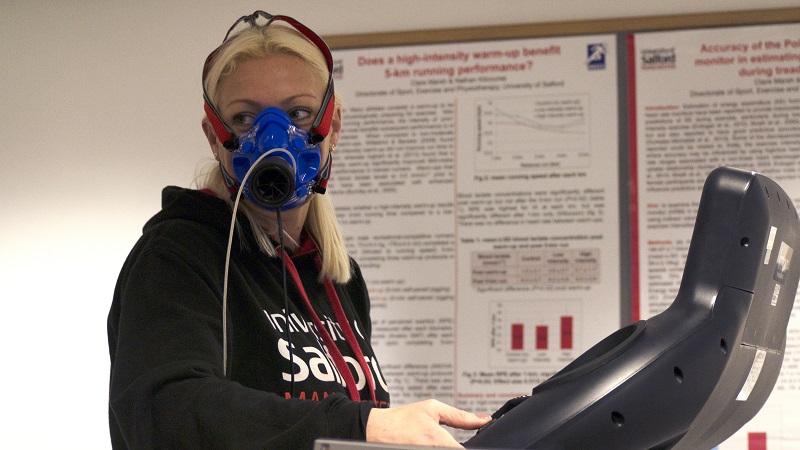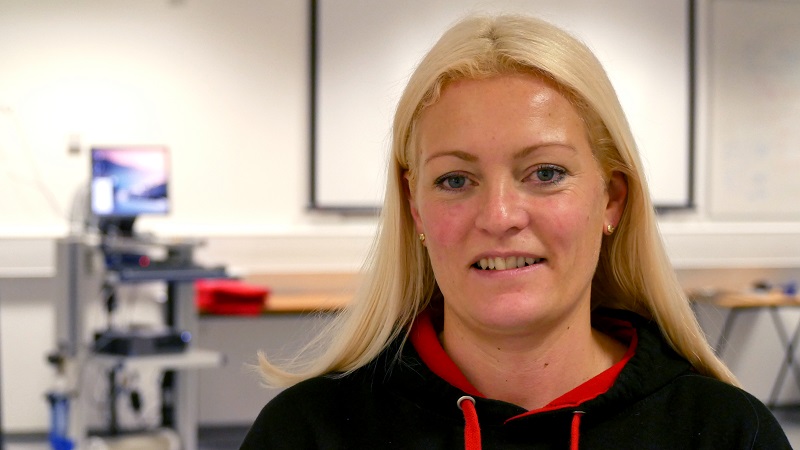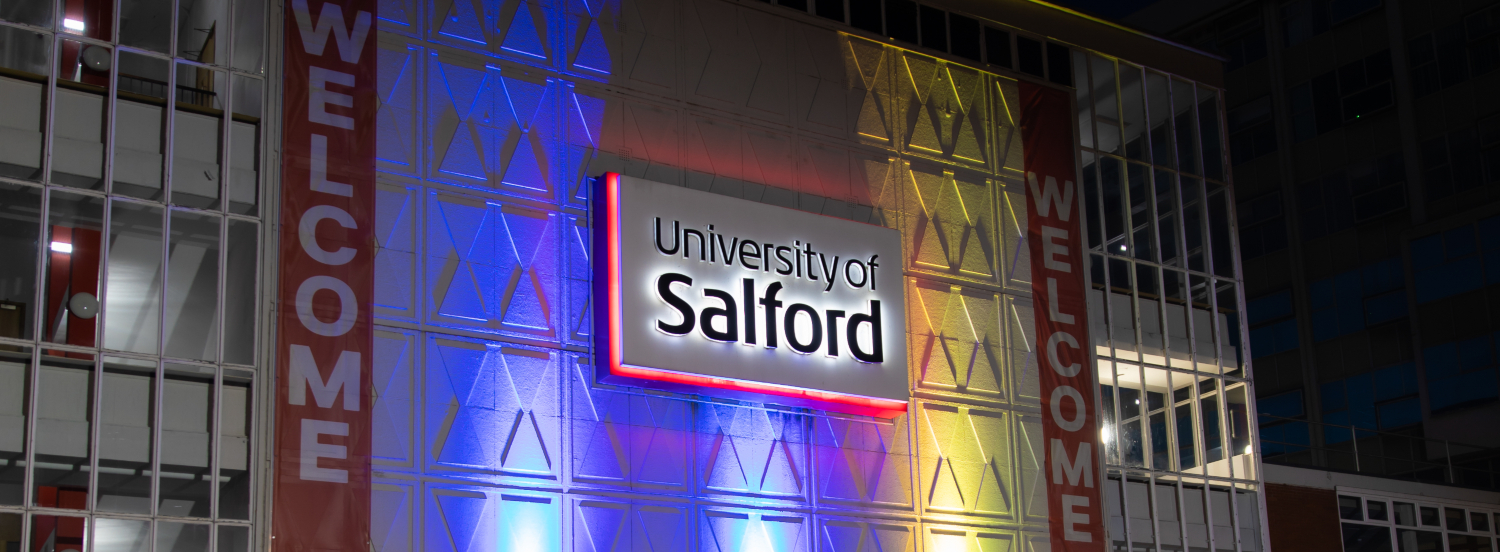Rebecca Murray is an BSc (Hons) Nutrition and Exercise as Medicine (NEM) student. She described to us a typical day in her life as a student at the University of Salford:
Hello Rebecca, from getting up in the morning to the end of the day, what is a typical day for you as an NEM student?
A typical day would be getting up at around half past six. I get up, get the dog, go for a three mile run with the dog, come back home, get the children ready, take the children to school. Then I have a 45 minute commute from Bury to Salford.
Then it’s straight into lectures, typically for about an hour and a half. I find on EPAH courses that we have a really interactive, fun kind of lecture. The morning session is classroom based. We learn the background and the basics, which then is broken down into group sessions. There’s lots of participation through the lessons and our lecturers encourage us to ask questions.
If it’s a physiology lesson we may join in with students from other courses such as Sports Science, Sport Rehabilitation and Physiotherapy in one of the large lecture theatres. Then we have a tutorial where we go through what the lecture was about in more detail. We study in the Mary Seacole and Allerton buildings and there’s probably about 30 participants at a time. Then we break for lunch.

For lunch we normally all end up in the Allerton café, which is really nice with the healthy noodle bar and there’s salads and soups, so I don’t need to bring lunch with me. That’s normally when I get to socialise with everyone over a coffee! We sit there chatting, or when it’s nice we’ve got an outside area where we can all sit and meet over lunch.
Afternoon lectures tend to be in the Physiology lab where we put into practice what we’ve learned in the morning sessions. It’s a case of bringing your gym kit and getting involved and stuck in. One of us does the testing while the other one does the running. We take blood samples to test how long lactate accumulates in the blood for after exercise. We collect data to use in our assignments.
I use the Learning Space in Allerton for extra study. There’s the quiet learning zone where I can take my laptop and get some work done. Sometimes though I find it’s better to do it from home because I’ve got the school run.
At the end of the day I have to make sure I’ve got all my notes and not left anything in uni, it’s a bit of a mad rush! Straight to the car, back over to Bury to pick the kids up, after school activities for the children, get home, make tea then it’s time to sit down and start doing my research.

What else do you get involved in at university besides your course?
I get involved in open days. It’s really nice because I get to put my spin on things for people, especially for the younger ones because I’ve found I’ve become sort of a mentor. They will turn to me and ask me for a bit of help with time management, as when you’re 18 years old you’re still learning that skill.
Tell us about your lecturers.
The lecturers on the EPAH course are all from industry, there’s Dr Anna Robins, Dr Paul Sindall, and Dr Paul Wilson who is now Associate Dean of Health Sciences. Their connections in the industry are absolutely fantastic. They work with a lot of boxers, Scott Quigg has visited us, and we work closely with Rick Moylan who is also a strength and conditioning coach running his own business. So we get to see real life people and how the industry has worked for them. You can see them when you like as you can book tutorial sessions with them even if they’re not your own personal tutor. I can’t speak highly enough of them.

Why did you choose to study NEM at Salford?
I used to be a Financial Advisor and I’d been in finance all my life. When I was pregnant with my second child I took voluntary redundancy. Then it was a case of “I don’t want to go back into that industry”. I’ve always had a keen interest in health and exercise so I started to research courses. I stumbled on Salford and once I’d read the information I knew that it was the course for me.
My main reason for coming back to uni was my interest in the childhood obesity epidemic. Ideally what I want to do is work in the promotional side of public health and physical activity and see how that is aligned to writing policies and commissioning new services for our children. I just want to be in a position where I can influence the future of our country.





Leave a Reply